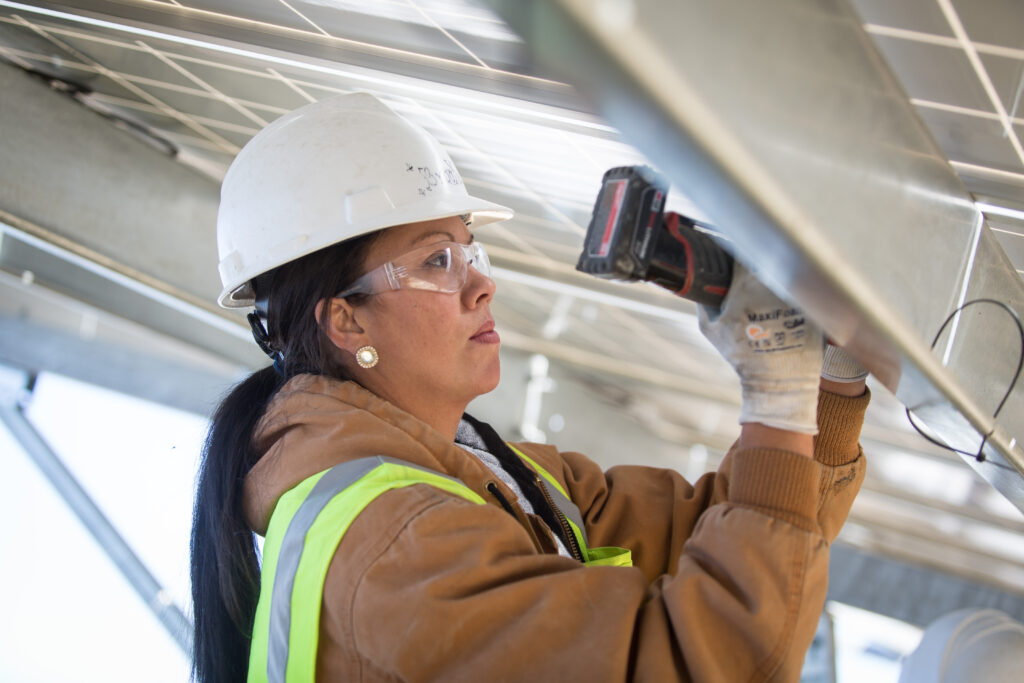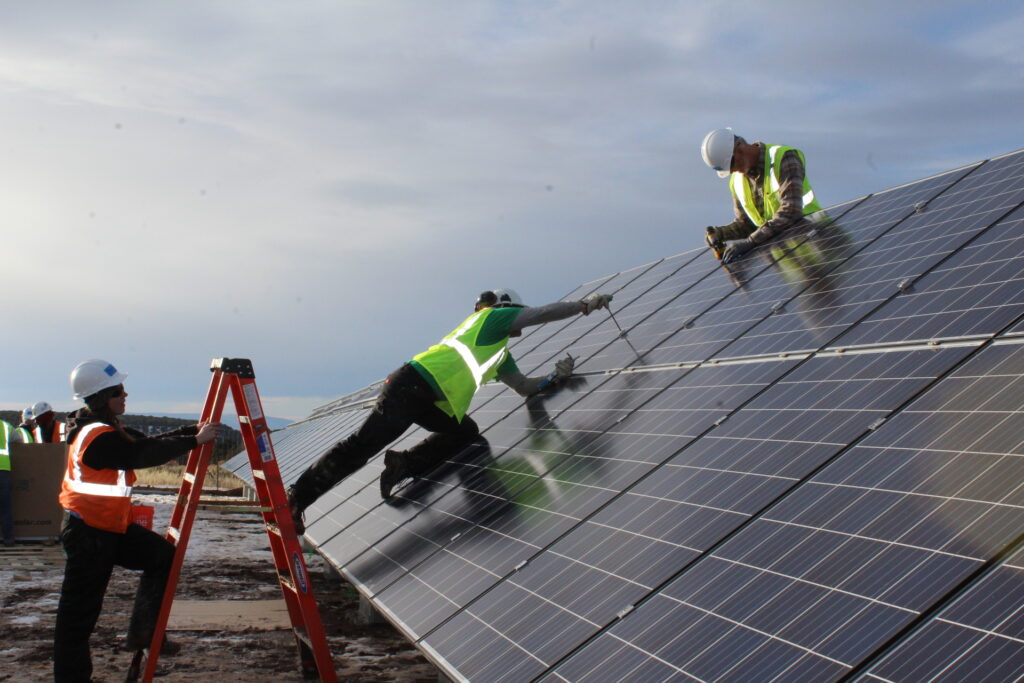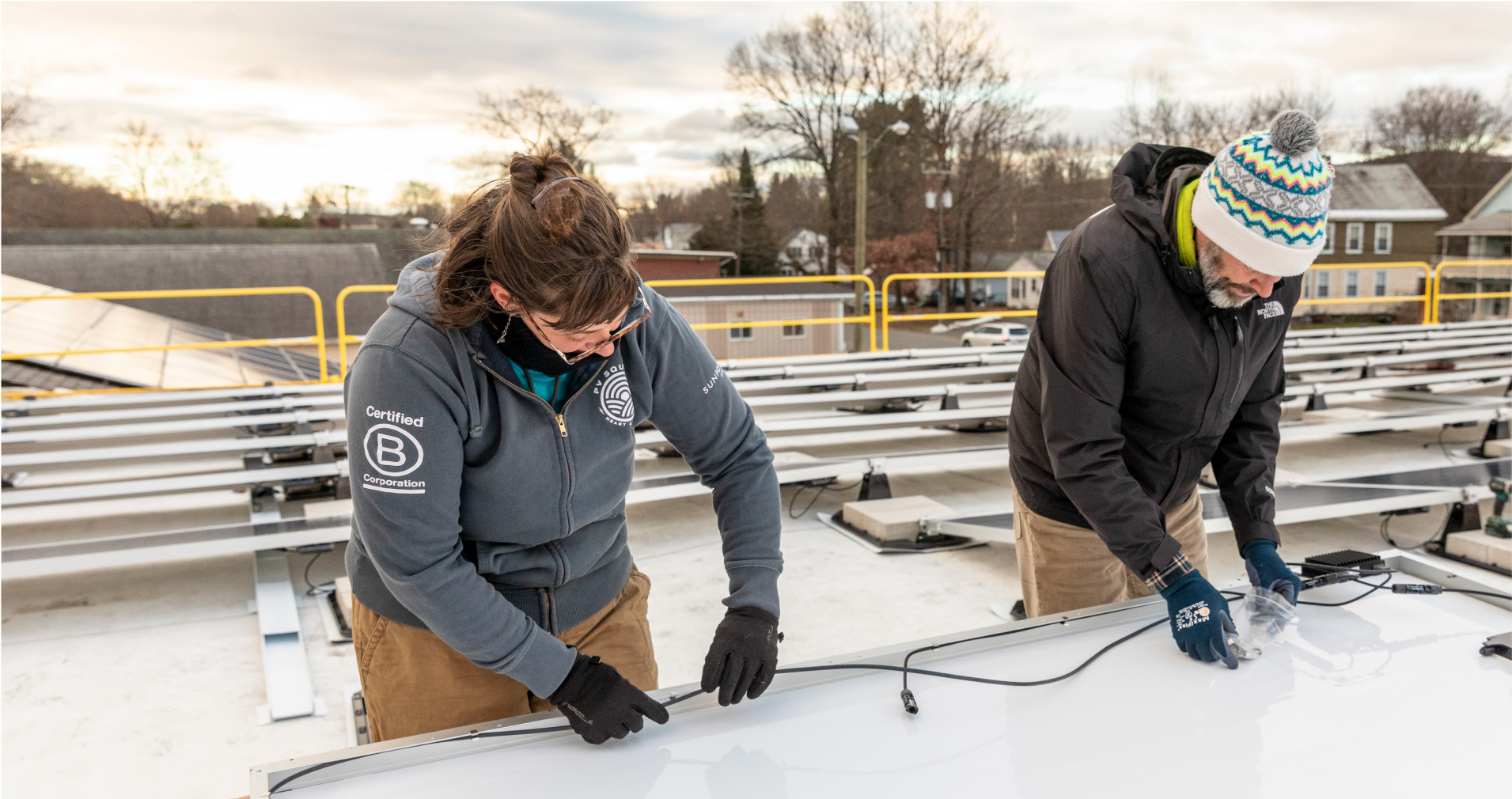
Assessing the Clean Energy Workforce
How can we expand equitable access to clean energy jobs in New England?
Significant growth in clean energy jobs is expected from the energy transition, especially given recent climate-centered federal policies. Meeting this job demand will require a strong, strategic, well-resourced workforce development ecosystem and a focus on creating equitable, high-road job opportunities that people of color and women can plentifully access.
To better understand these needs, Barr’s Climate Program commissioned an analysis from Emerald Cities Collaborative—with partners Browning the Green Space, nomada Consulting, Ponder Analytics, and BW Research.
One core value of the Barr Foundation essential to this research has been its commitment to centering racial equity in its mission, investments, and in its work with partners and communities. This objective underpins Barr’s Climate program and clean energy strategy, which has long supported an extensive portfolio of investments and advocacy to accelerate a just shift to clean, renewable energy in New England.
Through this research, Barr seeks to provide data to inform a field-wide conversation and to engage other foundations on this topic. We hope that the resulting report helps foster constructive dialogue between clean energy and workforce leaders, and that it inspires additional philanthropy in our region.
Key Questions
The first focus area began with a clean energy landscape and workforce ecosystem analysis for New England to answer the following questions:
- What is the current workforce ecosystem in New England?
- How can we support job entry or retraining/upskilling pathways into clean energy for people of color?
- What entry points and pathways exist for minority and women-owned businesses entering the space?
The second focus area explored philanthropic funding supports and approaches to clean energy workforce development to answer the following questions:
- How can philanthropy increase economic inclusion by integrating and partnering with institutions serving people of color and immigrants who are not currently in the green jobs ecosystem?
- How can philanthropy support public funding and incentives to advance clean energy workforce development?
- What is an appropriate role for Barr and other foundations?
- How well have these programs increased both awareness and access to jobs for people of color?
- How can philanthropy increase economic inclusion by integrating and partnering with institutions serving people of color and immigrants who are not currently in the green jobs ecosystem?
Key Takeaways
To address these questions, the research partners utilized a multi-disciplinary research plan; combining surveys, executive interviews, focus groups and data and policy analyses. Key takeaways include:
- The clean energy industry in New England is stable but will need to grow to meet climate goals and anticipated demand for energy technologies.
- The clean energy sector is behind other sectors of the economy in gender and racial inclusion.
- Sector growth must intentionally balance job quality and job access as federal funding support for clean energy increases over the next several years.
- Regionally, the workforce development and clean energy sectors remain siloed in many state and local governments. Further collaboration is needed to improve connectivity across the workforce ecosystem.
- In New England and throughout the country, there has been limited philanthropic support for clean energy workforce development. Deeper philanthropic engagement could foster collaboration and support equity-centered approaches to industry growth.
Access to Clean Energy Jobs: Expanding Opportunities
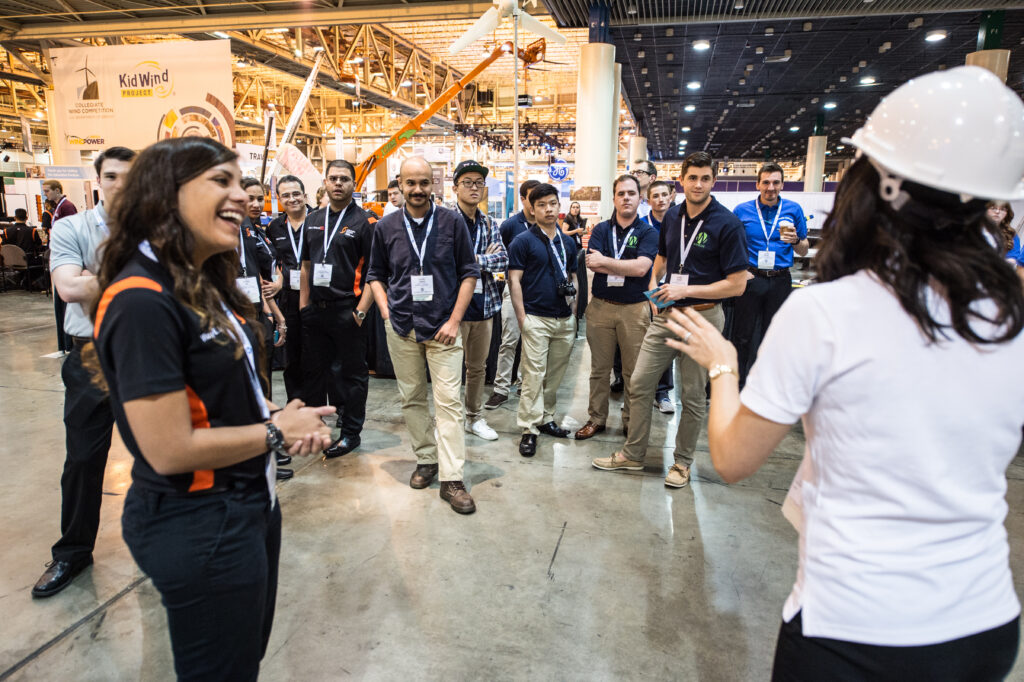
Clean Energy Workforce Assessment
Kathryn Wright, Senior Program Officer in Clean Energy and research partners from BW Research and Emerald Cities present their findings.
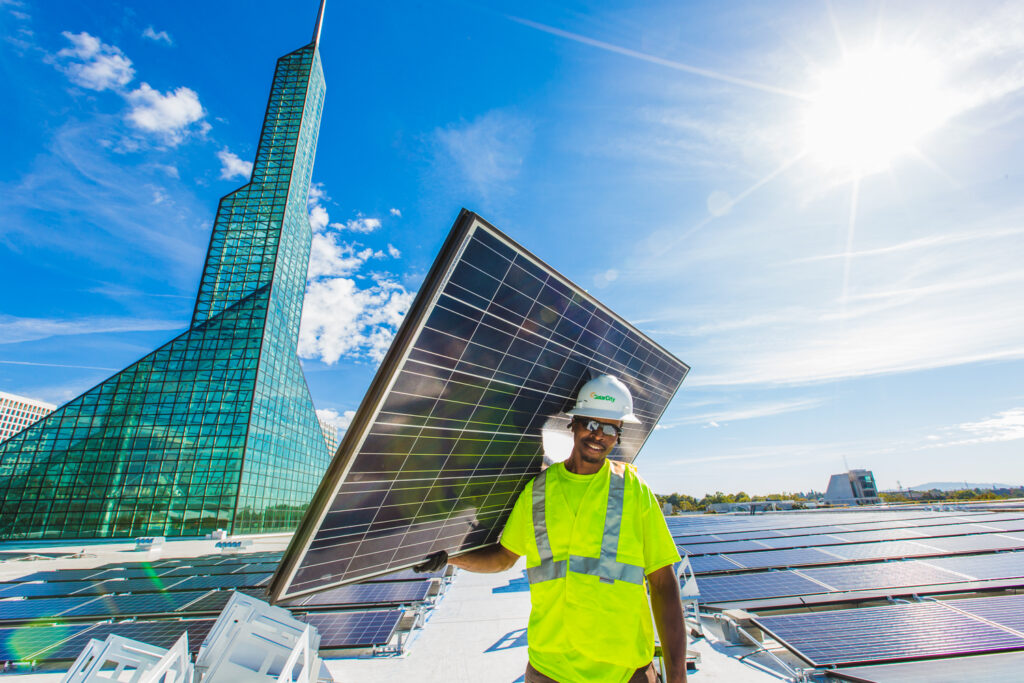
Supplemental Datasets
Geographic Profiles of the Clean Energy Workforce Ecosystem
-
Hartford-East, Hartford-Middletown, Connecticut
Hartford has an emerging infrastructure of educational institutions, organized labor, regional and state agencies, advocacy, and firms in active partnerships focused on creating pathways in the climate sector.Read the Profile -
New Haven-Milford, Connecticut
New Haven has several workforce training assets to support pathways into clean energy careers. There are four Job Corps pre-apprenticeship programs throughout the State of Connecticut that serve New Haven and Hartford.Read the Profile -
Portland, South-Portland, Maine
Maine’s prioritization of high-road jobs in solar and offshore wind along with a commitment to a diverse workforce, has led to $3M in funding to support diverse hiring, prevailing wages and the development of apprenticeship programs for the renewable energy sector.Read the Profile -
Boston-Cambridge-Newton, Massachusetts and New Hampshire
The City of Boston is positioning itself to become an important workforce hub for the region. Regional collaboration is strong partly fueled by quasi-governmental organizations like Massachusetts Clean Energy Center (MassCEC).Read the Profile -
Springfield, Massachusetts
Springfield’s infrastructure is emerging to meet clean energy demand, especially roles in energy efficiency. Programs like the energy systems program at Springfield Technical Community College offer a training model for short-term credentialing.Read the Profile -
Providence-Warwick, Rhode Island
This area has one of the strongest pre apprenticeships models in the region. Organizations like Building Futures RI focus on enrolling applicants from underrepresented communities and providing them with paid training opportunities.Read the Profile
